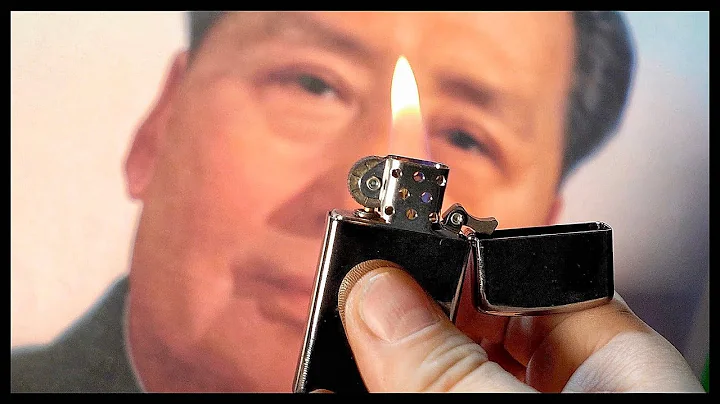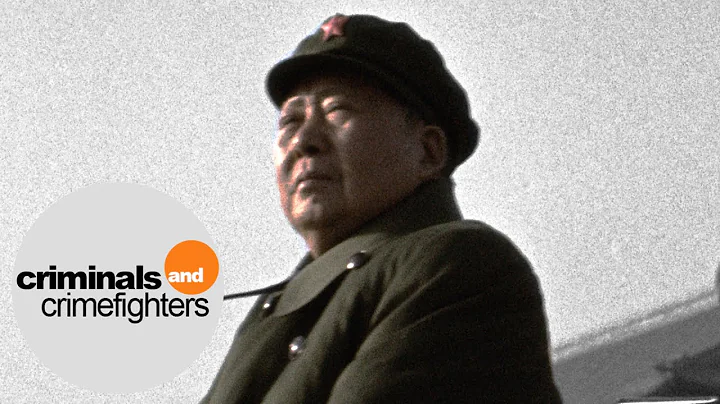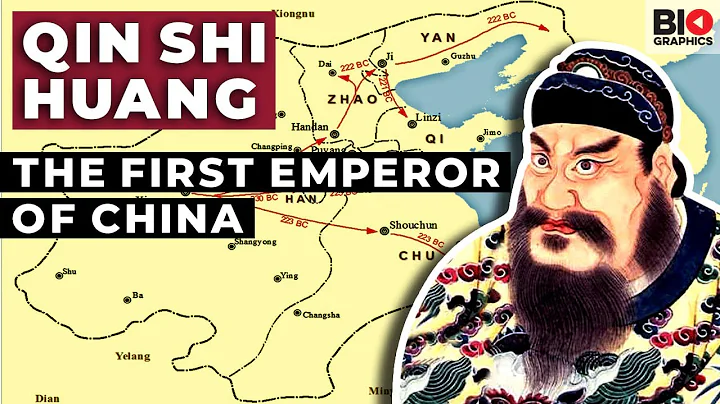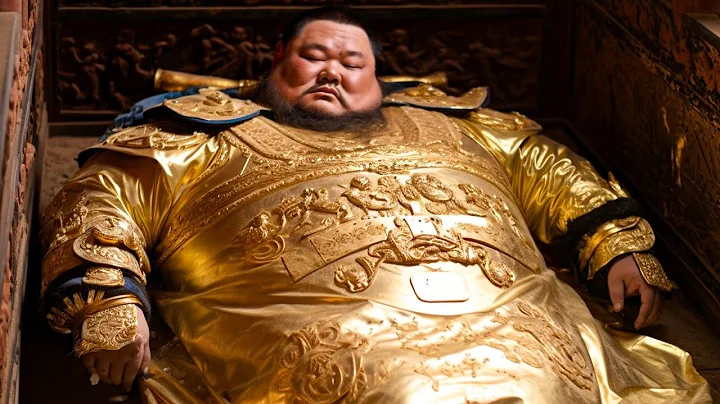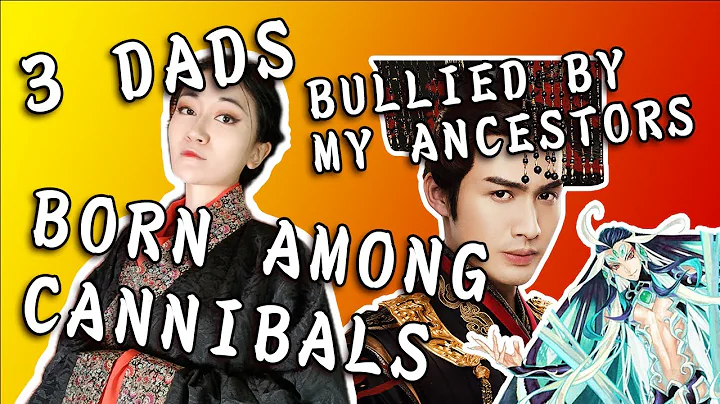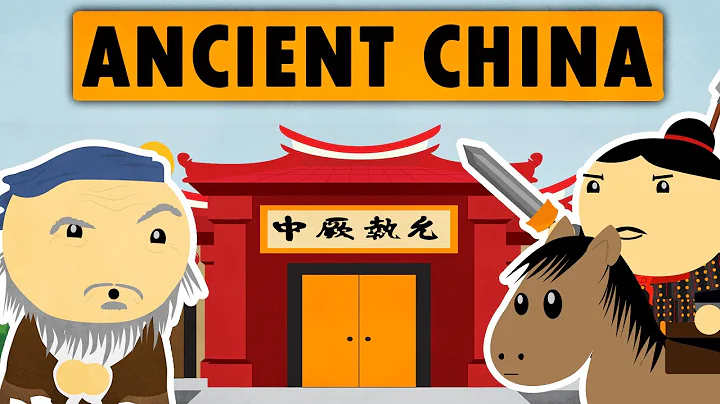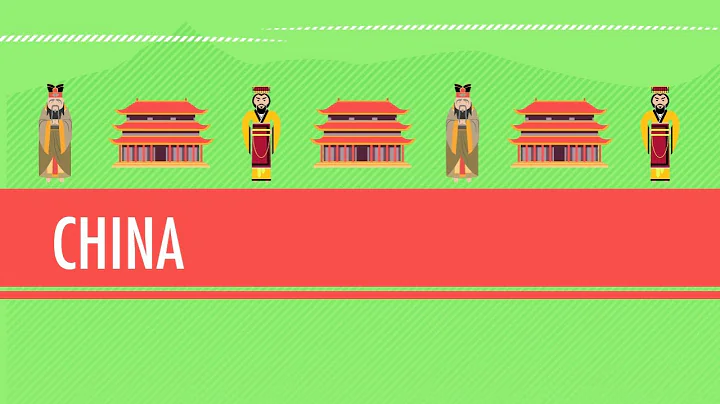Advocating frugality is a fine tradition of the Chinese nation since ancient times. In this regard, Chairman Mao and other proletarian revolutionaries of the older generation are both active advocates and dedicated practitioners.
Throughout his life, Mao Zedong did not envy luxury but advocated frugality. Always maintain the true character of working people and truly demonstrate the proletarian style of conduct.

"Why could I sleep on a wooden bed yesterday, but I can't sleep today?"
On March 23, 1949, Chairman Mao bid farewell to the northwest slope and stationed his troops in Peiping .
Chairman Mao's residence was arranged in Xiangshan Shuangqing Villa . When he walked into his bedroom for the first time, he saw a magnificent big bed, and he couldn't help but lose his temper.
This bed looks more magnificent than any bed Chairman Mao slept on before.
Now that Peiping has been liberated, the living conditions are much better than those during the march and war. It is natural for the Chairman to sleep more comfortably. The staff also believed that with Chairman Mao’s contribution and status, such a bed should have been available long ago.

However, Chairman Mao was very angry about this. He said to the staff in a high voice: "Why should I be arranged to sleep on such a bed? Why could I sleep on a wooden bed yesterday but not today? I am used to sleeping on a wooden bed. "I don't like this bed."
The staff felt aggrieved: Why can't our Chairman Mao have some "special" treatment that is not excessive? The management department staff had no choice but to buy another wooden bed.
Chairman Mao was very satisfied when he saw this bed. The guards around him spread the bedding brought by Xibaipo and arranged for the Chairman to go to bed and rest. Later, when Chairman Mao moved into Zhongnanhai Fengze Garden, the staff moved the wooden bed there.

Chairman Mao’s requirements for bedding have always been extremely simple. A wooden bed, half for books and half for sleeping. A pillow wrapped in white cotton cloth filled with buckwheat hulls . This kind of pillow could be seen in many farmhouses at that time. It was hard but highly malleable, comfortable and easy to sleep on, and breathable. It was warm in winter and cool in summer. It was said that it could cool the blood and refresh the brain.

Soong Ching Ling I heard that the chairman used a buckwheat skin pillow, and I felt sorry for it. I went to the street to pick a big and long pillow. This pillow is made of striped cloth, has no cover, is very soft, and is made of duck down.
Chairman Mao was not in the habit of accepting gifts. In order to show respect, he accepted it and gave Soong Ching Ling one hundred catties of Shandong cabbage in return. After placing the duck down pillow on the bed for a while, Chairman Mao said: "I can't enjoy this pillow. I'm still used to using buckwheat pillows."

In the hot summer, Chairman Mao had a pillow mat made of bamboo and straw, and a cover Use it interchangeably on buckwheat hull pillows.
Chairman Mao's bamboo pillow mat is 68 centimeters long and 40 centimeters wide. The four sides of the pillow mat are bound with white cloth, and there are white cloth strips covering the pillow core at each end. This bamboo pillow mat was damaged due to being with the owner for too long. The chairman was still reluctant to throw it away, so he asked the guards to find someone to put two white cloth patches on the front and back of the pillow mat. The cotton cloth and soft Sew the bamboo strips with thin stitches and continue to use them.
Another straw pillow mat, produced in Ningbo, Zhejiang. It is 67 centimeters long and 48 centimeters wide. It is made of yellow and green grass materials. It was originally very beautiful and was also bound with white cloth. It has been used for too long and has lost its original color. There are three white cloth patches on the reverse side.

Chairman Mao was not afraid of the cold and was not used to covering himself with quilts. The quilts were too heavy to cover his body, making it difficult to sleep peacefully. In the warm seasons of spring and summer, he only covers himself with a towel and quilt for the night. In the cold autumn and winter, he covers himself with an additional towel and quilt and an old military blanket.
The towel quilt that Chairman Mao used to cover him all year round has been used for too long. It has no "hair" and no thickness. It is just like a piece of plain cloth.
Once, a worker in the laundry room was washing a towel and quilt for Chairman Mao, and accidentally tore it. Chairman Mao still said the same thing: "It can still be used after a little refill!" The staff had no choice but to continue to refill him. I didn’t even dare to wash it after patching it up. After using it for a long time, it became really weak and a big hole would appear when I scrubbed it gently.

Towels were patched
Chairman Mao had a towel that had 54 patches. They were all patched with old towels from the early 1950s to the early 1970s.
It was a rectangular piece of white, blue, red and green cotton gauze fabric, 215 centimeters long and 183 centimeters wide.
is made in Shanghai. One end is printed with the words "Made in Pacific Weaving Factory" in red, and the other end is printed with the words "600" and "Six-foot Art Bedcloth" in red, and a red circular pattern is also painted on it.
is now preserved in the Comrade Mao Zedong Memorial Hall and has become a national second-class cultural relic.

"Remember, you can no longer make clothes in the future. These clothes are enough for me to wear for a lifetime."
During the war years, Chairman Mao wore whatever he had. In order to save some cloth, his clothes were often patched. After liberation, Chairman Mao remained simple and simple as always.
Chairman Mao said many times within the party: "We cannot enter Beijing like Li Zicheng. They will change when they enter Beijing. We must continue the revolution and build a new socialist China. We must not be greedy for enjoyment."
Just now Not long after entering Peiping, Chairman Mao once met with democrat Zhang Lan. He asked the guard chief Li Yinqiao to find better clothes. Li Yinqiao rummaged through the chairman's "inventory" and selected again and again, but he couldn't pick out a decent new dress.
He had no choice but to report to Mao Zedong: "Chairman, we are really poor scholars who came to Beijing to take the exam. We don't have any good clothes."
Chairman Mao pondered for a while, comforted Xiao Li and said: "Old clothes don't matter, just be neat and clean. Zhang Lan is Eminent people will not blame us."
In this way, Chairman Mao met Zhang Lan in Beijing Hotel wearing old clothes brought by Northwest slope. Later, he met Shen Diaoru, Li Jishen, Guo Moruo... in the same dress. Those people outside the party were deeply moved by the chairman's simple clothes.

On the eve of the founding of the People's Republic of China and before preparing to hold the founding ceremony , Zhu De specifically raised the issue of adding more clothes to Mao Zedong and other leading comrades at the Standing Committee meeting. The reason is: "The leaders of the People's Republic of China wear tattered clothes, which affects the country's image." Previously, Chairman Mao had no new clothes.
The General Office of the CPC Central Committee immediately began preparations to make some clothes for Chairman Mao and other party and state leaders.
Master Wang Ziqing of "Leimeng Clothing Store" in Dongjiaomin Lane, Beijing, once studied tailoring in Paris, France, and was very famous in Beijing at that time. Li Yinqiao and Wang Ziqing jointly selected the fabric, and Premier Zhou Enlai checked it. In terms of style, they finally decided to use Chinese tunic suit . The Chinese tunic suit was solemn and fashionable at the time, and could be regarded as the "national costume" of New China.

Chairman Mao's formal attire was produced. There were four sets in total, two sets each in black and gray. There are also several pajamas for spring, summer, autumn and winter.
When Chairman Mao saw this, he said uneasily: "There are too many new clothes made. If we were in Xibaipo, we wouldn't do so many. It costs a lot of money! I, Mao Zedong, also started to waste! Remember, you can't do it again in the future. These clothes are enough for me to wear for a lifetime."
When the chairman saw several large and long thin pajamas, he looked happy.
He selected two of them: one was made of beige cassava cotton, and the other was made of light yellow thin cotton velvet.
"Keep these two items and take the rest!" From then on, Chairman Mao wore pajamas when working and studying at home.

"Isn't it just washed out? You can still wear it after a patch."
In 1962, Chairman Mao's beige cassava cotton pajamas that he had worn for more than 10 years were torn in large parts by washing, and the staff was very nervous. But the chairman said: "Isn't it just washed out? You can still wear it after repairing it."
Later, it was sent to the quilt factory Master Liu Kuiyuan for repair. Master Liu was really a master. He found fabrics of the same color and texture and carefully repaired them. There was no patch visible. Chairman Mao was very happy after seeing it.
In 1963, one day in early summer, guard Zhou Fuming came to the Zhongnanhai Service Office to pick up clothes.The comrade in the laundry room said to Zhou Fuming: "Xiao Zhou, give the Chairman a new one. Look at this pajamas. The sleeves and elbows are torn again, the collar is also frayed, and the cloth at the armpits is also very thin. When washing, If it doesn't work, it will be torn. "
"Hey! Change it after a while!" The chairman didn't say anything, and Zhou Fuming really had no choice.

A few days later, Zhou Fuming brought dinner to Chairman Mao. The chairman opposite was wearing this pajamas. Zhou Fuming took the opportunity to say:
"Chairman, this pajamas has too many patches. Please change them!" Zhou Fuming was looking forward to the chairman's answer.
Chairman looked at Zhou Fuming with his eyes and said, "Aren't you also wearing patched clothes?"
"Chairman, you and I are different." Zhou Fuming explained.
"Why is it different? It's because I am the chairman. Am I not also a member of the people?"
After hearing what the chairman said, Zhou Fuming felt his face turn red.
just patched it up again and again, and this pajamas lasted for another ten years.

Chairman Mao and Zhou Fuming
By 1971, the pajamas that had accompanied Chairman Mao for twenty years had resolutely gone on strike. If it can no longer be worn, the Chairman has no reason not to change it.
In the winter of that year, the staff put it into the warehouse of Zhongnanhai .
Later, when people were cleaning up the warehouse, they saw its completely different appearance: the collar had been completely replaced, and the sleeves, front page, hem, etc. were patched and patched. This patch can really be called " Baiyiyi ".
I'm afraid even ordinary people can't find such a "rare treasure", right? !

Speaking of Chairman Mao’s warehouse, we can feel his nostalgia. The warehouse is in a bungalow on the east side of the yard. Except for six old wooden boxes, there is nothing else in it.
The wooden cabinet contains old things brought from Yan'an : the large cotton-padded jacket worn by the chairman, worn-out clothes, changed towels, socks, shirts, etc., all washed and stacked in the box. When Chairman
was in Yan'an, sweaters were all hand-knitted. After weaving, the remaining threads and rags for mending clothes, blue cloth, yellow cloth, and gray cloth, were placed in two large packages in the box.
When people need to mend towels, quilts, clothes and socks, the staff rummage around here looking for them, and sometimes even use medical gauze as patches.

"It doesn't matter, others can't see it if you wear it. I don't mind it."
Chairman Mao's nostalgic and frugal mentality is closely connected with his hard and simple life style. When conditions were not good, Chairman Mao refused to enjoy it. This was taking the lead in hard work, and most people can understand it. Conditions improved, but Chairman Mao still refused to enjoy them. He said: "I have been doing this for decades, and I am used to it!"
Chairman Mao had a shirt that was "very weak" due to being worn for a long time and washed many times. When Chairman Mao put it on, a foot-long slit ripped open in the back.
Guard Li Jiaji said: "Chairman, can this shirt be changed? You have a big mouth!"
Chairman Mao looked at the torn shirt and said with a smile: "Then just sew the big mouth shut, it doesn't matter, others can wear it underneath." I can’t see it. I don’t mind.”
The staff used a piece of white cloth more than a foot long to mend the big hole.

After Chairman Mao returned from his first trip to the Soviet Union, Li Jiaji and Li Yinqiao cleaned the Chairman's clothes. The shirt with a patch that was more than a foot long was yellow and torn, so they took the initiative and gave it to Li Fenghua's child in the security class as a diaper.
One day, Chairman Mao had to wear the mended shirt again. Li Jiaji secretly complained. He didn't dare to say that he would use it as a diaper for his child, so he could only excuse himself and said, "I can't find it.
Chairman Mao muttered: "Is there someone stealing my shirt in Zhongnanhai?" "
Chairman Mao insisted. Li Jiaji had nowhere to look. He was so anxious that he was sweating. He was thinking about how to make a self-examination. Suddenly he had an idea and lied to the chairman for the first time:
"Chairman, I saw Li Fenghua. The child had no clothes to wear, and seeing that the shirt really couldn’t be repaired, I thought: Wouldn’t it be nice to use it to modify the child’s small clothes? It’s not a waste either, so I did it without asking…. When Chairman
heard this, he realized that he was not throwing it away casually and that it was not wasted. His expression became relaxed and he said, "Well, that's good, that's good." "
Li Jiaji played a little clever trick and finally got through. He later learned that Li Fenghua was not willing to use the shirt as a diaper for his child, but kept it. In this way, Li Jiaji felt at ease.

Li Jiaji
passed by, Ordinary people often say, "Three years of new life, three years of old life, and another three years of sewing and mending." And Chairman Mao wore more than three years of clothing!
One late winter night, a woman who was newly transferred to work beside Chairman Mao. Soldier Han Guixin mended Chairman Mao's shirt under a small oil lamp. She picked up the shirt and looked at it. There were old patches and new patches. She felt really unhappy.
She ran to find the guards who took care of Chairman Mao's life! They shook the shirts in their hands and asked: "Why does the chairman wear this shirt so well?" Will we feel better if the Chairman wears this shabby shirt? Why not get a new one for the chairman?
Guard Chief Li Yinqiao pursed his lips and said, "I asked for new ones several times, but the chairman wouldn't let me get them!" "I'm going to find the chairman!" "Xiao Han said and turned to leave.
Li Jiaji stopped her and said: Don't disturb the chairman. The chairman's clothes are always mended and mended again. You haven't seen the sleeves of his thick sweater. "Two patches of different colors!"

Then, with reverence, they told Xiao Han the past events of Chairman Mao's hardship and simplicity.
Li Yinqiao and Li Jiaji said common things in front of Xiao Han: As long as the chairman doesn’t resolutely refuse, he won’t enjoy anything he wants to eat or wear! However, our leaders hold high positions and live frugally. They have never enjoyed anything or paid attention to anything.
Han Guixin held the shirt with tears in her eyes, returned to her room, turned on the small oil lamp, and carefully mended it stitch by stitch with slightly trembling hands. What could be a more profound education than this!

"I only broke one hole when I put it on my feet. You broke two holes with just one move of your hands. You are still powerful!"
Chairman Mao believed that diligence and thrift should start from a drop of oil, an inch of cloth, and a pair of socks. If you start small and add up, you will have a huge impact.
When he was in Yan'an, Li Jin, Chairman Mao's orderly, knitted several pairs of socks for him with the yarn he spun. Chairman Mao cherished them very much and was afraid that they would wear out. He asked someone to bring in a few pairs of cloth socks, cut the knitted socks from the bottom, and then sewed the cloth socks to the bottom.
In Chairman Mao's hometown Shaoshan , farmers have been using this method to make socks for the past few decades. In this way, they are warm and durable.
Everyone knows that Chairman Mao modified socks in this way, and they all followed suit.

Chairman Mao's frugality in clothing may seem a bit "excessive" to ordinary people. One time, guard Feng Yaosong found another hole in Chairman Mao's socks, so he took them off for him and patched them with a rag. He used too much force, and one hole turned into three holes.
This is a pair of socks that have had their soles changed twice. The socks are thin and the tubes are loose and cannot withstand washing.
"Chairman, can you get a new pair? These socks are ruined," Feng Yaosong said. Chairman
said wittily: "I wore it on my foot and it only made one hole. You broke two holes with just one move of your hands. You are so powerful!"
Feng Yaosong smiled helplessly and had to get a needle and thread. Hang a few stitches on that breach.
waiter Yao Shuxian recalled: "Chairman Mao was sitting on the sofa chatting with the life defenders. He stretched his feet naturally, and his stockings were exposed. There was a rectangular patch connected to the tube and bottom of the stockings. So eye-catching.I was so absorbed in looking at the patch that I didn't even listen to the content of their chat. "When
recalled this incident, she said with deep emotion: "I have witnessed the Chairman's frugality with my own eyes. "

" I don't wear it every day. If I can wear it once, I will wear it again! "
Chairman Mao often wore cloth shoes and slippers at home. His cloth shoes were thick "thousand-layer bottoms" with layers of rag soles, oval uppers, and black suede. As early as the Jinggangshan period, Mao Zedong The chairman and his comrades wore these black cloth shoes and called them "Red Army shoes."
After entering Beijing, living conditions have improved, and the products are much more abundant.
Shops are lined up in rows and alleys. The chairman still loves his black cloth shoes. His cloth shoes are usually made at Neiliansheng Shoe Store in Dashilan, Beijing. The fabric is black and has the characteristics of being non-grey. The soles are handmade and are quite thick.
Chairman Mao. Most of the cloth shoes he has worn have been repaired after being damaged, and the soles are almost worn out, revealing the blue, red, and black rags contained inside. The thin layer left is enough to show how long the chairman has worn them. It fully proves that Chairman Mao is always frugal and thrifty.
It is understandable for the founder of the Republic to buy a few new pairs of shoes, but Chairman Mao insisted that he would never buy new shoes for him until they were too worn out.

In February 1972, Chairman Mao's feet were swollen, and all the cloth and leather shoes he had worn before could no longer be worn. At this time, the US President Nixon was about to visit China.
The staff asked the Chairman to step on a piece of white. I drew a shoe print on the paper.
There is an old lady in Daxing County, Beijing, who has been making shoes for many years. I found out that the old lady is almost sixty years old and she is still good at her work. It was done as soon as possible. The old lady in the countryside was a simple woman. When someone asked for it, she didn't ask who would wear it. She just agreed to work overtime and finished it in three days. The shoe was fat and big. Chairman Mao tried it on. Ha! It's quite appropriate. Chairman Mao wore it to meet with Nixon.

In the early days of the founding of the People's Republic of China, the staff bought a pair of brown leather slippers for Mao Zedong.
He was very satisfied with this pair of leather slippers when he "worked" beside him. Nearly ten years later, the upper began to fade, become gray and very ugly.
Chairman Mao would never leave it. He was always willing to take it with him when he went out for inspections.
In 1966, Chairman Mao came to Wuhan. He still carried the pair of leather slippers with him.
He washed his feet and put them on at night. Unexpectedly, the upper suddenly broke and the staff rushed to the shoe store. The shoe repairman couldn't repair the shoes after seeing them. He refused to mend it no matter how hard he tried. The staff had to find a piece of suede used to clean the car and mend it.
The "life" of the pair of leather slippers was extended for another ten years until the early 1970s. These shoes can no longer be repaired. Chairman Mao finally reluctantly let his "old friend" who had been with him for more than 20 years rest.

Once, when Chairman Mao was about to receive foreign guests, Li Yinqiao went to the shoe cabinet to pick leather shoes. He picked up a pair and put them down, put them down and picked them up again. He compared them over and over again, but he couldn't choose a better pair even though he picked them from left to right.
Chairman Mao often wore a pair of leather shoes for several years, or even more than ten years. He felt that there was no need to replace them if they could still be worn, and he would save money if he could. His leather shoes are very old: the heels are worn, the uppers are wrinkled, the paint is peeling, and the collars are frayed.


Li Yinqiao found a pair of tan leather shoes that Chairman Mao preferred to wear. During the founding ceremony of the People's Republic of China, Chairman Mao wore it and climbed onto the Tiananmen Rostrum.
This pair of leather shoes has been worn for more than ten years. The upper has a lot of wrinkles, and the shiny leather has lost its color. Li Yinqiao rubbed oil twice, but the leather shoes still had no luster.
Looking at the soles again, 1 centimeter of the soft rubber sole on the heel has been worn away, and the inside of the leather shoes has also faded.
While Li Yinqiao was polishing his leather shoes, Chairman Mao's words rang in his ears: I don't wear it every day, I can wear it once and then again!
Li Yinqiao lowered his head to look at the pair of shiny black leather shoes under his feet, and his eyes couldn't help but get wet. He said to the people next to him: "Chairman Mao's leather shoes are much older than ours! Chairman of the party and country!"

After Chairman Mao's death, many staff members participated in the cleaning of the relics. When we saw his used soap box, leftover soap, and washing powder again, everyone had mixed feelings: The chairman, despite his high status, has never enjoyed it in his life!
Some people say: Chairman Mao’s patches are the virtues of the Chinese nation, the atomic bomb of our spirit, and our eternal compass.
Some people say: Chairman Mao’s patch engraved the simplicity of a national treasure and radiated the frugality of the spirit of self-reliance.

Mao Zedong advocated freedom throughout his life and was full of pioneering and enterprising spirit. He was a romantic, free and unrestrained politician, revolutionist and strategist with a poetic temperament. He was born in a remote and backward mountain village, and his spirit of daring to challenge enabled him to break out of the mountain and run towards the light and progress. Smashing the old world and creating a new China, he became the leader of a great country and a giant that attracted worldwide attention.
His frugality in life may seem incompatible with his style and temperament, but in fact they are closely connected. It demonstrates the noble sentiments of a generation of great men who never forget their origins and roots and serve the people wholeheartedly throughout their lives!

Thank you for reading the article. The text of
is compiled and written by the author's subjective thoughts + historical and objective facts.
Reading history brings wisdom, reading history brings knowledge, and reading history makes sense.
For more articles, please click the blue link below, or go to 








